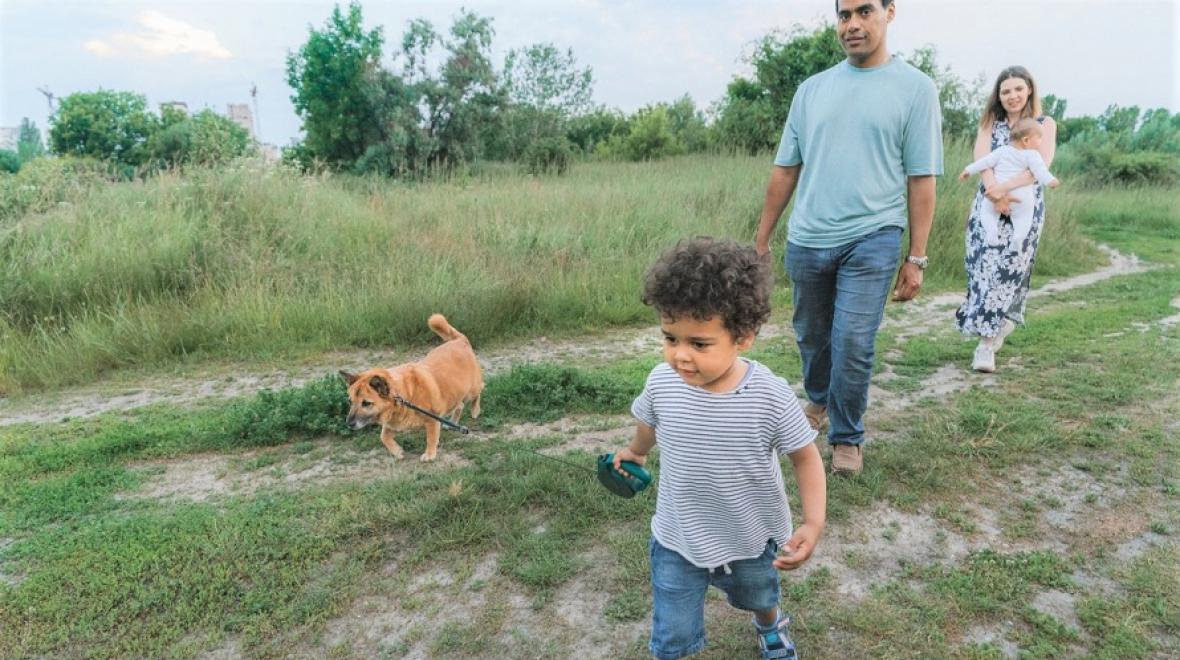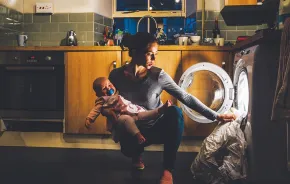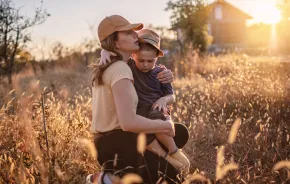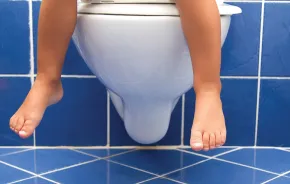
"Do as I say, not as I do." Whether we're conscious of it or not, this is how many of us parent. We want better for our kids — without actually having to change anything about ourselves. We limit their screen time because too much is bad for them, but will genuinely calculate the hours of sleep we'd get if we watched "just one more episode." We tell them it's okay to cry, yet we try our best to hide our tears. If what we want for them is better than what we're currently doing, why aren't we taking our own advice? Here are seven steps to becoming a more conscious parent.
1. Positive self-talk
Kids have selective hearing. That's why they didn't hear you call their name six times but are somehow able to remind you that you said "sh*t" on the second Thursday of June, three years ago. So, what are they hearing? How many of us are quick to call ourselves "stupid" when we make a mistake? Or "fat" when our clothes don't fit right? We'd never speak to our friends that way, so it's time to cut ourselves some slack. Positive affirmations aren't for everyone, but they work. Reminding yourself that you deserve to be treated with respect or that you aren't a number on a scale isn't silly, it's factual. You are enough, simply by being. Teach your kids to love themselves by loving yourself.
2. Exercise
According to the Centers for Disease Control and Prevention, only 23 percent of adults get the recommended amount of physical activity; and only 20 percent of all children and adolescents meet that same goal, according to the World Health Organization. It can be daunting to think about throwing on gym clothes and working up a sweat before or after a hard day's work. For many parents, it ends up being a choice between spending time with their kids or exercising. A family walk or bike ride will get those endorphins pumping, and at the same time create strong bodies and even stronger bonds.
3. Affection
Displays of affection unfortunately cause some parents discomfort. Hugs, high fives and kisses allow our children to feel safe and loved. Additionally, we should all want our kids to find themselves in relationships later in life that include kissing, touching and hand-holding. Remember that they will emulate the relationships they experience and see. A little affection can go a long way.
4. "I love you"
We are hardwired for love, yet for many, "I love you" can be a vulnerable phrase to say. No more waiting around and being afraid to say it, assuming they know. It's time to cut straight to telling the people we love that we love them. The more these emotions get expressed, the safer and more appreciated our loved ones will feel; it also sets the groundwork for other, more challenging emotions to be communicated and managed, together.
5. Diet and cooking
We all want our children to be healthy, but they aren't going to be if we aren't. Why should they eat their vegetables if you won't? If soda is so bad for you, why can you drink it but they can't? It's time to level the playing field. If time is an issue, try prepping meals for the week. If you don't even know where to begin, companies like Blue Apron and Hello Fresh will send you step-by-step instructions along with perfectly sized portions. If that's all too much, start even smaller. Drink more water. You'll notice that you'll start to look and feel better. And pro tip? Your kids will notice, too.
6. Apologizing
Why is it that when little Tommy hits baby Jordan we swoop in like the SWAT team, encouraging Tommy to make amends with a stern "What do you say?" And yet so many adults struggle with stringing the words "I'm" and "sorry" together? We must hold ourselves accountable. Acknowledging our mistakes shows our children that we are fallible human beings. This fosters trust and a strong sense of security for both parent and child.
7. Self-care
With soccer on Wednesdays, piano on Fridays, playdates, birthdays and homework monitoring, parenting is like reliving childhood all over again, including the stuff you don't care to revisit. (Here's looking at you, math.) While our kids require tons of support, so do we. We are entitled to a little alone time and we are allowed to hang out in places other than the playground. Running on fumes like an unsolicited martyr doesn't make you a better parent — it makes you a basket case. It also teaches kids to pour from an empty cup. Go get that massage. Go cozy up with a good book. Go jet skiing, for crying out loud! We cannot, nor should we want to, live vicariously through our children. You got more miles on you, so take yourself for a spin.
It starts with awareness. For the longest time, I believed that nothing would stop two kids from yelling at each other like yelling "STOP YELLING!" at them. Parenting as our parents parented us, without ever asking ourselves if their parenting worked, is far too common. Every day we have a chance to be better versions of ourselves, and in turn, better parents for our children.











